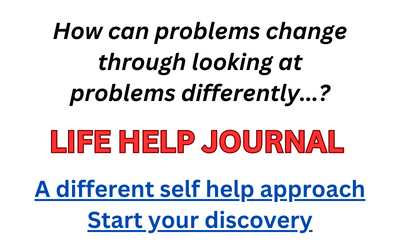Eben Alexander is a neurosurgeon and author of the popular book Proof of Heaven: A Neurosurgeon’s Journey into the Afterlife. In addition to being popular, Proof of Heaven has generated a good deal of controversy.
The book’s primary title, Proof of Heaven, has caused irritation and even anger among religious and spiritual skeptics. Some of these skeptics have responded to Eben Alexander by claiming that his story in no way proves the existence of heaven.
So what is Alexander’s story?
He says he had an experience of the afterlife, including interactions with God, during a time when his brain functioning was shut down due to a serious case of meningitis. These afterlife and God interaction experiences had to have been authentic, Alexander says, because his offline brain couldn’t have produced them.
These were no dreams, or hallucinations, or anything else brain based, says Alexander. That would have been impossible since, in effect, his brain wasn’t working.
Critics have taken exception to Alexander’s claim that his brain certainly wasn’t functional during any of the time that he had these otherworldly experiences. They don’t deny his condition per se or the impact it may have had on his cognitive capabilities; their essential argument is that his visions could have come at a time when his brain was online.
They contend he can’t absolutely state, and still be truthful, that these visions didn’t occur when his brain was functional.
The criticisms of Alexander and Proof of Heaven are based on more than just trying to be perfectly factual however: many of his critics are promoting and defending their own orientation that life begins at birth and ends at death, and there is no such thing as an afterlife — or even God. This is an interesting response, I believe, since some of these critics accuse Alexander of promoting an orientation of religion or spirituality.
They are, in effect, doing the very thing they accuse Alexander of. They may, and sometimes do, claim that their particular orientation is based upon provable science and so is “responsible” but this claim is actually false — science cannot and has not certainly disproved Alexander’s claims, or similar claims (the experiences behind these claims are often referred to as near death experiences, or NDEs).
Science certainly hasn’t disproved that NDEs are evidence of eternal life. Are NDEs absolute evidence of eternal life? No, not certainly, but NDEs are quite compelling if for no other reason than so many of them have been reported and documented, across all strata of life. NDEs are a story that has been told again and again and again, by a variety of people.
Something seems to be going on…
For critics of NDEs, and critics of Eben Alexander, a story from Esquire magazine is being held up as the latest proof of their position. The Esquire piece states that Alexander has had ethical lapses during his medical practice, which proves nothing about the validity of his afterlife claims, and also reports that one of Alexander’s treating physicians during his medical crisis says he was in and out of consciousness throughout the ordeal.
This claim from the treating physician is at odds with Alexander’s claim that he was unconscious, that his brain was out of commission and so he couldn’t have been conscious, during the entire course of his meningitis infection. Is this contradiction a deal breaker? Does it “debunk” Alexander’s narrative, as some claim?
I don’t believe so. To begin with, what is an accurate definition of consciousness? The treating physician says that Alexander was making incoherent vocalizations and writhing during his “conscious” state. If this sort of activity — seemingly involuntary activity at that — represents consciousness it would seem to be a quite limited form of it. And even if it were defined as consciousness would it prove that Alexander’s experiences were not, in fact, legitimate afterlife connections?
Absolutely not.
At best this question of Alexander’s conscious state raises the issue of just how accurate Alexander’s descriptive of his medical crisis is. Some have claimed that this potential inaccuracy calls Alexander’s entire credibility into question. Which means what? That he’s lying about his experiences?
Even if Alexander is lying about his experiences, so what? There are countless narratives about afterlife experiences beyond Alexander’s (the book Dying to Be Me, written by Anita Moorjani, is one fascinating example). The validity of NDEs does not rely on Eben Alexander’s story — not even close.
For the record, I don’t believe that Alexander is lying about his experiences. I heard Alexander recount his story before Proof of Heaven was published, and his afterlife experience claims were identical to those in Proof of Heaven. He also seemed quite sincere, and genuinely eager to share what he’d experienced with others.
None of this will be enough to win over some of Alexander’s critics. Fair enough. I, for one, don’t argue their right to be pessimistic about Alexander and NDEs in general. For everyone else, I continue to recommend Proof of Heaven as an exceptional — and inspiring — work about what it really means to be alive.

